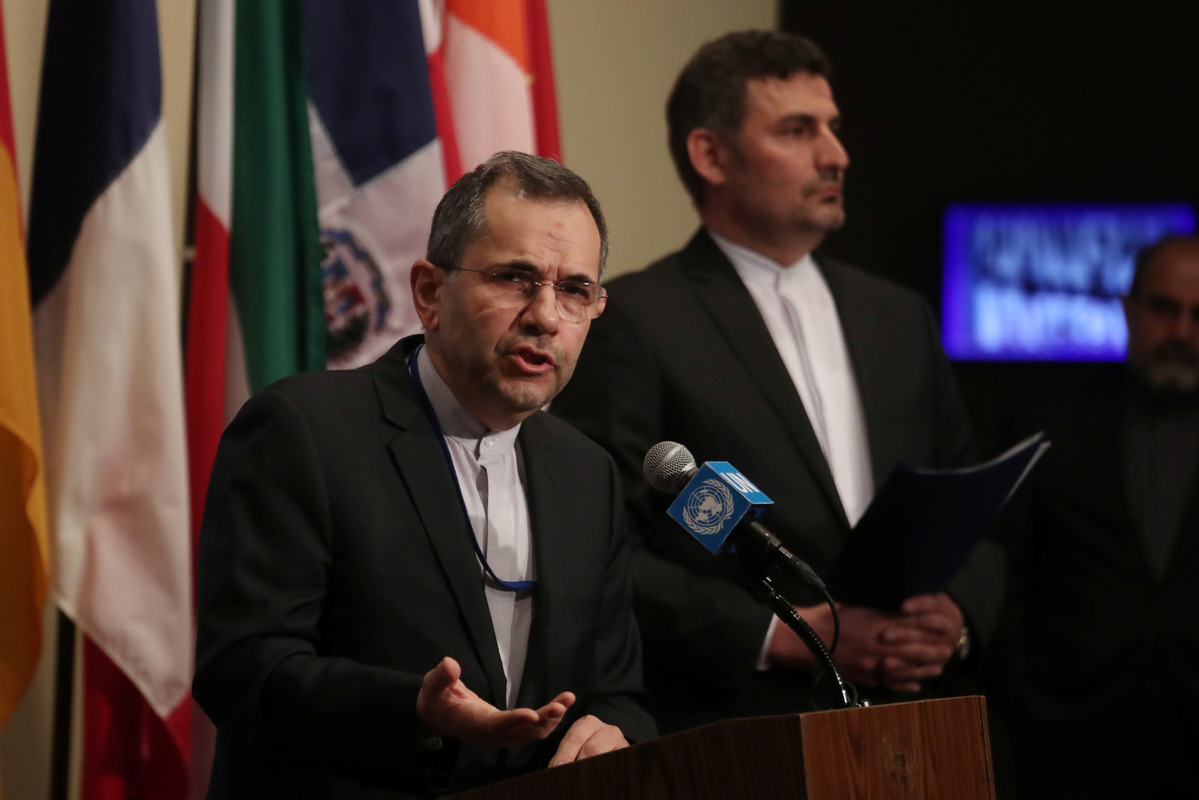EU trying to save Iran nuclear deal
By Chen Weihua in Brussels | China Daily | Updated: 2019-06-28 09:45

Rouhani urges US to drop sanctions and de-escalate soaring tensions
The European Union is trying to salvage the landmark Iran nuclear agreement after Iran threatened to breach the deal this week and even quit the agreement if other parties cannot honor their obligations.
The EU is expected to soon announce a multimillion-dollar credit line to help ease trade between the bloc and Iran with the hope of persuading Teheran not to quit the nuclear deal.
The deal, officially known as the Joint Comprehensive Plan of Action, or JCPOA, was reached in 2015 between Iran and China, France, Britain, Russia, Germany and the United States and endorsed by the United Nations Security Council. The Donald Trump administration withdrew from the deal last year and reimposed sanctions on Iran.
France, Germany and Britain announced in January that the launch of a special purpose vehicle, known as Instrument in Support of the Trade Exchange, or INSTEX, to help European companies legally bypass US sanctions in their economic activities with Iran.
Federica Mogherini, the EU foreign policy chief, said on Tuesday that the INSTEX is expected to be launched in the near future. "I believe now this is ready to be operational and I hope that this is something that can help Iran (remain) compliant with the agreement as it has done so far," she said.
Iran said in March that it would partially withdraw from the JCPOA if other parties do not honor their obligations under the deal. On Wednesday, Iran's Atomic Energy Organization said that Iran could potentially exceed one of the deal's enrichment limits on Thursday.
"The deadline for (Iran's) Atomic Energy Organization for passing the production of enriched uranium from the 300-kilogram limit will end tomorrow," the state IRIB news agency quoted spokesman Behrouz Kamalvindi as saying.
The organization previously said it could breach another limit on the enrichment of uranium after July 7 if no new agreement is in place.
On Wednesday, Iranian President Hassan Rouhani said the US should drop sanctions against Iran and return to the 2015 deal to de-escalate soaring tensions.
"The return to the nuclear deal would be the shortest way to secure the interests of all sides... and also good for the world, the region and especially the international (nuclear) nonproliferation treaty," he said.
The UN Security Council held a meeting on Iran's implementation of the JCPOA on Wednesday. A joint commission of the deal will be meet in Vienna on Friday.
Iran Ambassador to the UN Majid Takht Ravanchi said the US withdrawal from the deal and reimposition of sanctions had "rendered the JCPOA almost fully ineffective". "Iran alone cannot, shall not and will not take all of the burdens any more to preserve the JCPOA," he said.
Wu Haitao, China's deputy permanent representative to the UN, said China regrets US withdrawal from the JCPOA and its unilateral sanctions on Iran.
"We call upon the parties concerned to properly address the difficulties in maintaining normal economic and trade ties with Iran," he told the Security Council.
Tensions have risen lately after the US blamed the Iranian military for the attacks on several oil tankers in the Persian Gulf. Iran has denied the accusations.
Trump dropped plans to bomb Iran in response to its downing of an unmanned US drone that Iran said had violated its airspace. The US said it was in international airspace. Instead, Trump signed a new round of sanctions on Iran.
"This is the height of idiocy. There was a diplomatic agreement that worked. It's called the Iran Deal and if Trump was serious about diplomacy his Administration would be talking to the Iranian Foreign Minister, not sanctioning him," Ben Rhodes, a deputy national security adviser for the Barack Obama administration, said in a tweet on Wednesday.
Holly Dagres, a nonresident fellow with the Atlantic Council, said that the sanctions would deter Iran from returning to the negotiating table. "Teheran wants to see actual incentives - such as the United States returning to the nuclear agreement or removing sanctions - in order for it to negotiate with the Trump administration," she was quoted on the institute's website.
The Guardian and DW contributed to this story.
























